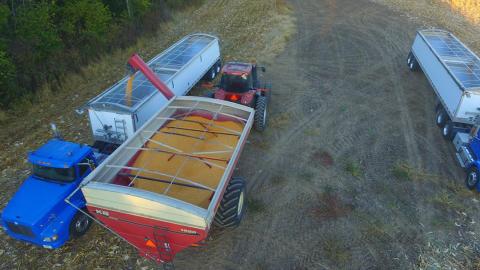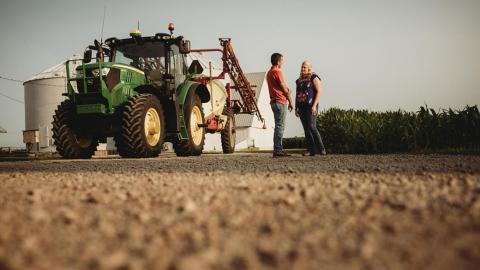Net Farm Income Impacts Net Worth Growth
April 26, 2024
Nebraska Extension Educator Glennis McClure explains the process of analyzing net farm income and earned net worth change for the year.
Ideas for Estate and Transition Planning: Gifting
April 24, 2024
Gifting assets, such as equipment, livestock, land, or shares of an entity, is one of several ways to compensate family members in an operation, but it requires careful consideration of the guidelines.

Pasture and Forage Minute: A Closer Look at Section 180, Forage Inventory Season
February 6, 2024
With recent land purchases, many Nebraska producers are seeking to better understand IRS Section 180 tax deductions. This article provides a review of the tax code and its potential financial implications for landowners of newly acquired land.
One-Participant 401(k): Saving for Retirement and Reducing Taxes
January 31, 2024
Insights on saving for retirement and reducing tax liability for self-employed farmers and ranchers.
One-Participant 401(k) as a Tool for Farmers and Ranchers
January 31, 2024
Center for Ag Profitability experts review features of the One-Participant 401(k), which helps self-employed individuals and their spouses save money for retirement and reduce taxable income.
Pasture and Forage Minute: Record-keeping for Taxes, Selecting Alfalfa Varieties
January 9, 2024
It's time for another tax season. Agricultural Economics Extension Educator Shannon Sand shares tips on getting prepared for the March 1 deadline. Plus, considerations for selecting alfalfa varieties.

2023 Income Tax Updates for Farmers and Ranchers
December 1, 2023
This webinar reviews 2023 tax considerations for ag producers, including crop insurance, deferral options for livestock sales, potential law changes and more.
UNL Webinar to Cover Corporate Transparency Act Requirements for Farm and Ranch Businesses
November 29, 2023
Webinar participants will learn more about the act, why it was adopted and what information will need to be filed in 2024 for farm and ranch businesses.





